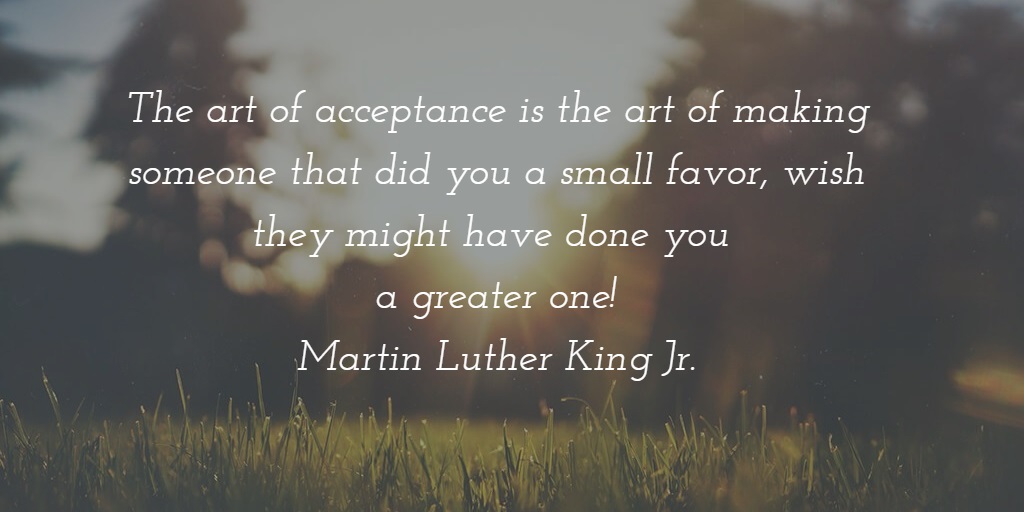High performing leaders know that a positive workplace is ideal for fostering a culture of high performance. We’ve introduced the topic of trust in the workplace this month. Now we’ll explore how acceptance plays an important role in fostering trust. There are always naysayers at work. One way to counteract negativity is with acceptance. Acceptance doesn’t mean ignoring situations but acknowledging what has happened and accepting where you are at that moment.
Using acceptance
"Life is 10% what happens to us and 90% how we respond to what happens to us."- Charles Swindoll
Acceptance is a choice. It comes easy for some and hard for most. As this quote exemplifies, you can only change the way you respond to situations. Therefore, accepting differences starts with you. Are you modeling self-confidence and authority? If you’re not accepting yourself as a leader, you can come across as inauthentic to your team.
Workplace conflict
It’s been said it takes as many as 5 positive experiences to counter act a negative experience. That’s a lot of extra work for what might be preventable! Customer service departments know this firsthand. Your first step as a leader should be to identify potential sources of conflict. Things to look out for include:
- Leadership style- are you managers too dominant or out of touch with their teams?
- Work-related interdependencies- do certain individuals or departments always “save the day”?
- Workplace culture- are you a professional office with too-casual employees?
- Personality differences- introverts and extroverts have very different ways of interacting.
Left unmanaged, conflict from these areas can have serious effects on your workforce. Some examples are increased stress, decreased productivity, gossiping employees or increased turnover. Coach your people to think about who they're speaking to. Are they saying, or implying, anything that might offend someone? Is their message respectful and compassionate? If not, then it might be best for them to learn better communication skills or to say nothing at all.
Working in an environment based on trust is ideal and achievable with tools like the ones we’ve covered this month. Acceptance is key to developing trusting professional relationships. When you’re ready to build trust and promote acceptance within your organization, contact me for your leadership development/coaching or organizational development needs.

